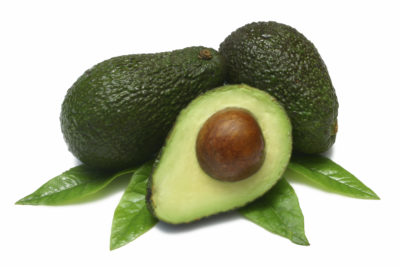Facts on Fats!

Did you grow up thinking fats were the enemy? Once upon a time, people mistakenly thought avoiding fats would improve your health, even help you lose weight. (Spoiler alert: Fats themselves do not make you fat. More on this later.)
Thanks to top-notch nutrition science, we now know that fats are really good for our bodies—healthy fat, that is. And surprisingly, most of us don’t get enough of these good fats.
On the other hand, too much bad fat is still bad for us, despite what you might see in the news or with the latest fad diets.
Still confused about fat’s bad rap? We’re here to break down the different types of fat and give tips for including more of the good stuff into your meals.
THE SKINNY ON FAT
Why all the fuss in the first place? For starters, fats help make food taste good, adding a rich depth of flavor. They can help us feel full and satisfied after eating. There are even some vitamins that need fats to be absorbed properly. All the more reason to focus on the healthy kind, in moderation.
There are many kinds of good fat, and you’ll find them in healthy, delicious foods like fish, nuts, and certain vegetable oils.
UNSATURATED FATS – IT’S ALL GOOD
Diets containing unsaturated fats are associated with good heart health, lower risk for type 2 diabetes, and reduced risk for certain cancers. Our bodies also need healthy fats for vitamin absorption, serve as a great energy source, support cell membrane and brain function, and even produce hormones (pretty important stuff).
Cooking oils made from olives, are all good fats—the monosaturated kind, to be specific. What’s more, the foods that contain these good fats—plants such as avocados, nuts, and seeds—often provide a variety of vitamins, minerals, fiber, and antioxidants.
Bring on the Omega-3’s and Omega-6’s
Heard of these? They’re examples of polyunsaturated fats, and they may help prevent heart disease while offering other health benefits. Omega-3 and omega-6 fatty acids are considered essential because our bodies cannot produce them on their own, therefore, we need to get them through the food we eat. For this, chow down on fatty fish such as salmon, mackerel, and sardines, as well as flaxseeds, walnuts, avocados, and almonds.
SATURATED FAT – BAD NEWS FOR YOUR HEALTH
Not all fats are created equal. Saturated is the unhealthy type you need to watch out for, as it has been shown to worsen blood cholesterol levels and increase the risk of heart disease. Saturated fat happens to be quite common in the American diet—think meat, butter, whole milk, and coconut and palm kernel oils. (Hint: If a fat is solid at room temperature, it’s likely a saturated fat.) These are also key ingredients in less-than-healthy items such as pastries and fried foods.
Most of us can feel free to enjoy the occasional cookie or piece of fried chicken, but too much can pose a problem. As a guideline, the USDA recommends that less than 10% of your total calories come from saturated fats. Meanwhile, the American Heart Association recommends a lower goal of 5% to 6% for anyone who wishes to lower their risk for heart disease and stroke. If you eat 2,000 calories a day, that means topping out at 22 grams or 13 grams of daily saturated fat, respectively.
Bottom line: Less is more.
Trans Fats
Finally, we come to a particularly unhealthy type of saturated fat: trans fat. These fats are most often artificially produced for their texture and “mouth feel,” and they usually appear on ingredient lists as partially hydrogenated oils.
Trans fats are the fats most definitively linked to negative health outcomes, like increased bad (LDL) cholesterol and decreased good (HDL) cholesterol. They are also associated with conditions such as heart disease and type 2 diabetes. The link is so clear that the FDA has taken steps to remove artificial trans fats from processed foods. Regulations in the U.S. have been put in place to remove almost all “partially hydrogenated oils” from food products by January 1, 2020, but most companies have already removed these artificial trans fats from their products, or have plans to remove them long before the deadline.
FAT = FAT?
And what about the age-old idea that fats make you fat? After all, it’s in the name!
It’s important to remember that even healthy, unsaturated fats contain calories. And too many calories, from any food, can lead to weight gain. So, as the saying goes, enjoy everything in moderation.
INCORPORATING HEALTHY FATS IN YOUR DIET
A balanced diet will lend itself to more unsaturated fats and fewer saturated fats. Choose whole grains, legumes, nuts and seeds, fresh fruits and vegetables, low-fat dairy, and a variety of lean and plant-based proteins, and you should be in good shape.